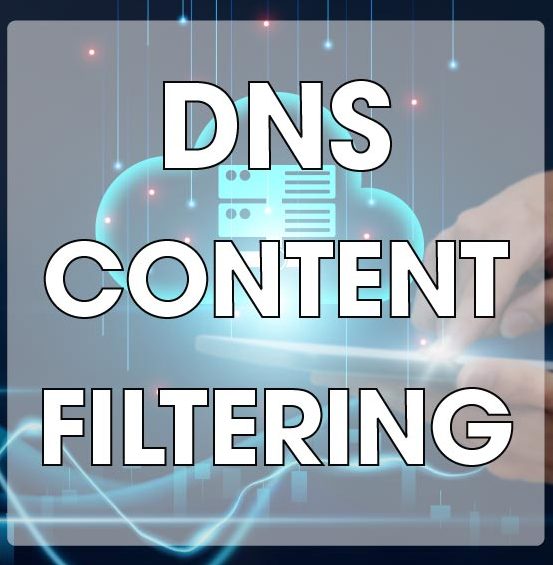
DNS content filtering for MSPs is provided as a software-as-a-service (SaaS) solution and it is the easiest type of web filtering for MSPs to add to their software stacks. Site visits are not required as there is no hardware to install, and to start filtering, an MSP only needs to change a client’s DNS server to point to the service provider. Content controls can then be configured for each client through a web-based interface. The whole process from initial implementation typically takes around 20 minutes per client, and once configured, DNS content filtering for MSPs involves little in the way of ongoing maintenance.
Why DNS Content Filtering for MSPs Matters
DNS content filtering – and web filtering in general – is used to exercise control over the content that users of the network can access. Schools implement DNS content filters to prevent minors from accessing age-inappropriate content and harmful online material. Businesses implement content filters to prevent employees from accessing pornography and illegal web content, and for limiting productivity losses by restricting access to gaming, gambling, dating, and social media websites.
Content filtering used to be something of an inexact science – Content controls were applied, but there was often collateral damage. Sites would be blocked that should have been allowed and vice versa, which, for the MSP, meant a considerable amount of time had to be committed to tweaking the filtering controls and whitelisting or blacklisting specific URLs.
Modern content filters have granular controls that allow precise filtering of content, so the maintenance requirements are far lower than they used to be. Further, to make DNS content filtering for MSPs easier to manage, some SaaS providers offer solutions that allow the delegation of controls to clients, which means they can whitelist or blacklist URLs themselves.
What has made DNS content filtering for MSPs even more important in recent years is the substantial increase in cyberattacks on businesses and the increasingly sophisticated methods used in those attacks. Traditional cybersecurity solutions such as firewalls, antivirus software, and spam filters fail to block many of these threats. DNS content filtering for MSPs adds an extra layer of protection and will block access to phishing content, prevent malware downloads from the Internet, and make it harder for employees to download unauthorized software (shadow IT).
MSPs that have yet to add DNS content filtering to their software stacks are missing out on easy, recurring monthly revenue. If you have yet to add DNS content filtering to your security stack, you should strongly consider trialing some solutions. Many SaaS companies offer a free trial of DNS content filtering for MSPs so take advantage of these offers to put the solutions to the test. Websites such as G2, Expert Insights, Gartner, and PeerSpot are good sources of information on the best products on the market, with feedback often provided by the sites from genuine users of the solutions. These sites can save MSPs time in their search and help them find a product that will perfectly meet their needs.
We recommend looking for a solution that has the following features as this will improve protection for clients and allow you to provide Internet protection with minimal effort.
Important Features of DNS Content Filtering for MSPs
DNS filters are used for content control and threat blocking for on-network users. When employees work remotely, using company-issued or personally owned devices, a client needs to be installed on their device. This ensures that no matter where they access the Internet, the filtering controls will be applied. Ensure the vendor has this capability.
Managing multiple cybersecurity solutions for clients can be time-consuming. For ease of setup and maintenance, choose a fully multi-tenanted solution that provides a single pane of glass view of all clients. Many vendors provide solutions that can be easily integrated into the backend systems used by MSPs, such as through APIs. Maintenance can be laborious with some solutions, so we recommend trialing products to see how easy they are to use. The less time spent managing the solution the better.
Some vendors have limited hosting options, requiring MSPs to only use the solution in their public or private cloud. If you would prefer to host the solution within your own data center, some vendors permit this. Some also provide their product as a white label ready to take an MSP’s branding.
Finally, to make the solution more affordable for MSPs, some vendors offer monthly billing. We recommend looking for a solution with a flexible usage-based pricing policy. Some vendors offer DNS content filtering for MSPs, yet their pricing policy is not MSP-friendly and fails to accommodate fluctuating seat numbers.
Photo Credit: AD / stock.adobe.com







